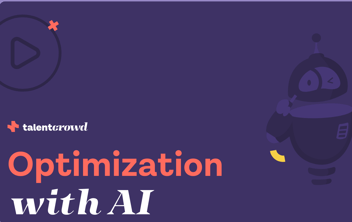Today’s digital landscape contains more threats than ever. Cybersecurity isn't just a tech issue; it's a fundamental business concern, especially for industries like fintech and medical software development, where the information is more sensitive than a cheap apartment’s smoke detector.
You're not just protecting data but also financial assets, personal information, and even human lives. It's imperative to ensure that your development team is not only highly skilled but also deeply versed in the best practices of cybersecurity. This starts with the first line of code.
Learn why hiring only the crème de la crème of developers who understand security at its core is essential.
Security from Day One: A Must-Have Approach
Think of cybersecurity as the foundation of a house: you wouldn't build the walls and roof and then decide to lay down the concrete, would you? The notion seems absurd, yet that's precisely how some organizations approach cybersecurity—tacking it on as an afterthought. But in sensitive industries, such a casual approach is nothing less than playing with fire.
The work starts on day one and should be considered by every developer who works on the project. Cybersecurity shouldn’t be relegated to a specific team or a particular phase of the project. It should be included in everything from the initial discussions around a project's scope to the final lines of code.
So why is this start-from-scratch approach so absolutely crucial? Well, retrofitting security measures into an already-built application is akin to slapping a Band-Aid on a wound that needs stitches: it's inadequate, short-sighted, and potentially hazardous. You end up patching vulnerabilities instead of eliminating them. This exposes your organization to risks that can have disastrous financial and reputational repercussions, especially in susceptible industries like fintech and healthcare.
At Talentcrowd, our top-notch developers don't just add lines of code; they add layers of trust. Every API integrated, every data transaction made, every user input field crafted—each is meticulously developed with the highest security standards. We understand that modern cyber threats are sophisticated and incredibly adaptive. That's why our approach to security is multi-faceted, encompassing everything from data encryption to secure authentication to advanced monitoring solutions.
Starting with a secure foundation ensures you're not just playing catch-up with the bad guys but staying miles ahead from day one.
The Real Costs of After-the-Fact Security
There’s a saying, "An ounce of prevention is worth a pound of cure." Nowhere is this truer than in cybersecurity. Many companies treat cybersecurity like a fire alarm—something they remember only when there's an emergency. This reactive approach isn't just risky; it's extraordinarily costly regarding finances, reputation, and regulatory consequences. In industries like fintech, where the stakes are so high, the repercussions of a security breach can be devastating. You're not just looking at immediate financial losses; you're also jeopardizing the hard-won trust of your customers and potentially exposing yourself to legal actions. The fines, penalties, and the cost of damage control can far exceed the investment in a sound, proactive cybersecurity strategy. An upfront investment in solid security protocols is not an expense but a long-term saving.
Cybersecurity is Not a One-Time Affair
Let's debunk a common misconception right away: cybersecurity isn't a one-off project, a mere milestone on your development roadmap. Even if developed right from the start, it's a perpetual, evolving discipline that should be deeply integrated into every aspect of your software lifecycle. The threats are constantly changing, so your defenses must too. Cybersecurity should be a part of your daily routine, whether implementing secure APIs in the backend, adopting cutting-edge encryption techniques, or regular code reviews with a security-first approach. The most effective cybersecurity strategy is not a static defense but a proactive, living organism that continually adapts to new challenges.
The Expanding Threat Landscape
Before exploring solutions, it's essential to understand the constantly shifting battleground of the cybersecurity landscape. With each passing day, the threats grow more sophisticated. Ransomware attacks are now capable of crippling entire corporations, and advanced phishing techniques can trick even the most vigilant employees. This is particularly concerning for companies in fintech, which are treasure troves of user data, financial transactions, and proprietary algorithms. A single breach can give cybercriminals access to a goldmine of information, making you an attractive target. But it's not just fintech; the healthcare industry also deals with susceptible information, and a breach there can have life-altering consequences for patients. Recognizing the evolving and expanding nature of these threats is the first step in forming an effective and lasting defense.
The High Stakes of Fintech and Medical Software Development
So, what’s the big deal with fintech and medical software? What makes them so unique? Well, they are industries that handle some of the most sensitive business data. And they are even more reliant on digital frameworks than other sensitive industries like insurance and payroll providers.
When it comes to financial technologies, a minuscule loophole can lead to catastrophic financial losses, reaching into the millions or even billions of dollars. But the impact doesn't stop at monetary losses; a breach can erode the hard-earned trust of customers, sending ripples throughout the industry and affecting investor confidence. Once trust is lost, it's extremely difficult to win it back, and some companies never recover.
With medical software, the consequences can be even more dire. Vulnerabilities in the software could compromise the privacy and security of highly sensitive healthcare data. We're talking about patients' medical histories, treatment plans, and medication details. A breach in this arena doesn't just jeopardize data; it can literally put lives at risk by exposing critical information to unauthorized individuals. Imagine the horror of patient data falling into the wrong hands and being misused—it's a nightmare scenario with the potential to have real-world consequences, including legal actions and immeasurable emotional trauma for the patients involved.
So, when we say we're "gatekeepers," we're not just tossing around buzzwords; we're making a commitment. The developers at Talentcrowd are hyper-aware of the gravity of their responsibilities. We approach every project, especially those in the fintech and medical software sectors, with a heightened sense of caution and precision. We focus on creating not just functional and efficient systems but secure and robust ones that can withstand the threats lurking in today's cyber landscape.
Cybersecurity As a Managed Service
A newer trend in the security industry has been offering cybersecurity as a managed service, as everything seems to be offered these days. While cybersecurity as a managed service provides a layer of protection that can be invaluable, it should be seen as something other than integrating strong security measures right from the start of your project. Managed services can monitor your systems, detect vulnerabilities, and even respond to incidents, but these are essentially reactive measures. They act as an additional safety net but should not replace a well-thought-out, proactive security strategy built into the architecture of your application. In other words, consider managed cybersecurity services a valuable addition to your overall security posture, not a substitute.
Navigating the Security Landscape with the Right Talent
In a digital world teeming with cybersecurity threats, getting lured into the idea that an external cybersecurity service is all you need to keep your data safe is easy. But let's get something straight: while cybersecurity as a managed service has its merits, nothing replaces the innate value of having a team of highly skilled developers who build your projects with security ingrained in their DNA. And that's precisely where Talentcrowd shines.
We take immense pride in our vetting process, ensuring that each developer we bring on board is proficient in their technical domain and steeped in the best cybersecurity practices.
Are you in need of Python maestros who can construct a secure backend infrastructure? We've got you covered.
How about JavaScript savants who can fortify your front end against malicious attacks? Consider it done.
Our developers aren't just coders; they're craftsmen who view each line of code as a brick in your project's security fortress.
Our approach starts with a deep understanding of your industry needs, whether it's fintech's complex regulatory environment or medical software's stringent data privacy requirements. From there, we match you with developers who understand these intricacies and have a proven track record of implementing secure solutions in these sectors. This tailored approach ensures that your project isn't just functional and user-friendly and a bulwark against the ever-evolving threats that target these industries.
So, while we acknowledge the role that managed cybersecurity services can play in an organization's overall security strategy, at Talentcrowd, the most robust security posture starts with the right talent. After all, when your developers build security into the project from day one, you're not just responding to threats but preemptively neutralizing them. And in today's digital landscape, that kind of proactive defense isn't just a luxury—it's a necessity.
By entrusting your projects to the experts at Talentcrowd, you're taking a crucial step toward ensuring that your applications are as secure as they are functional and efficient. So why settle for anything less? With Talentcrowd, secure your project, your data, and your peace of mind right from day one.



